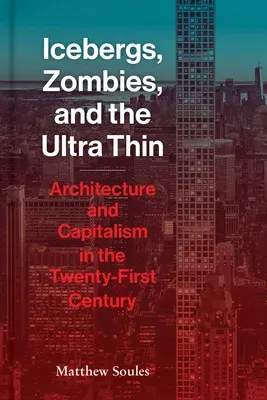Soules's excellent book makes sense of the capitalist forces we all
feel but cannot always name. Icebergs, Zombies, and the Ultra Thin
arms architects and the general public with an essential understanding
of how capitalism makes property. Required reading for those who think
tomorrow can be different from today.-- Jack Self, coeditor of Real
Estates: Life Without Debt
In Icebergs, Zombies, and the Ultra Thin, Matthew Soules issues an
indictment of how finance capitalism dramatically alters not only
architectural forms but also the very nature of our cities and
societies. We rarely consider architecture to be an important factor
in contemporary economic and political debates, yet sparsely occupied
ultra-thin pencil towers develop in our cities, functioning as
speculative wealth storage for the superrich, and cavernous iceberg
homes extend architectural assets many stories below street level.
Meanwhile, communities around the globe are blighted by zombie and ghost
urbanism, marked by unoccupied neighborhoods and abandoned housing
developments.
Learn how the use of architecture as an investment tool has
accelerated in recent years, heightening inequality and contributing to
worldwide financial instability:
- See how investment imperatives shape what and how we build, changing
the very structure of our communities
- Delve into high-profile projects, like the luxury apartments of
architect Rafael Viñoly's 432 Park Avenue
- Understand the convergence of technology, finance, and spirituality,
which together are configuring the financialized walls within which we
eat, sleep, and work
Includes dozens of photos and drawings of architectural phenomena that
have changed the way we live. Essential reading for anyone interested in
architecture, design, economics, and understanding the way our world is
formed.

